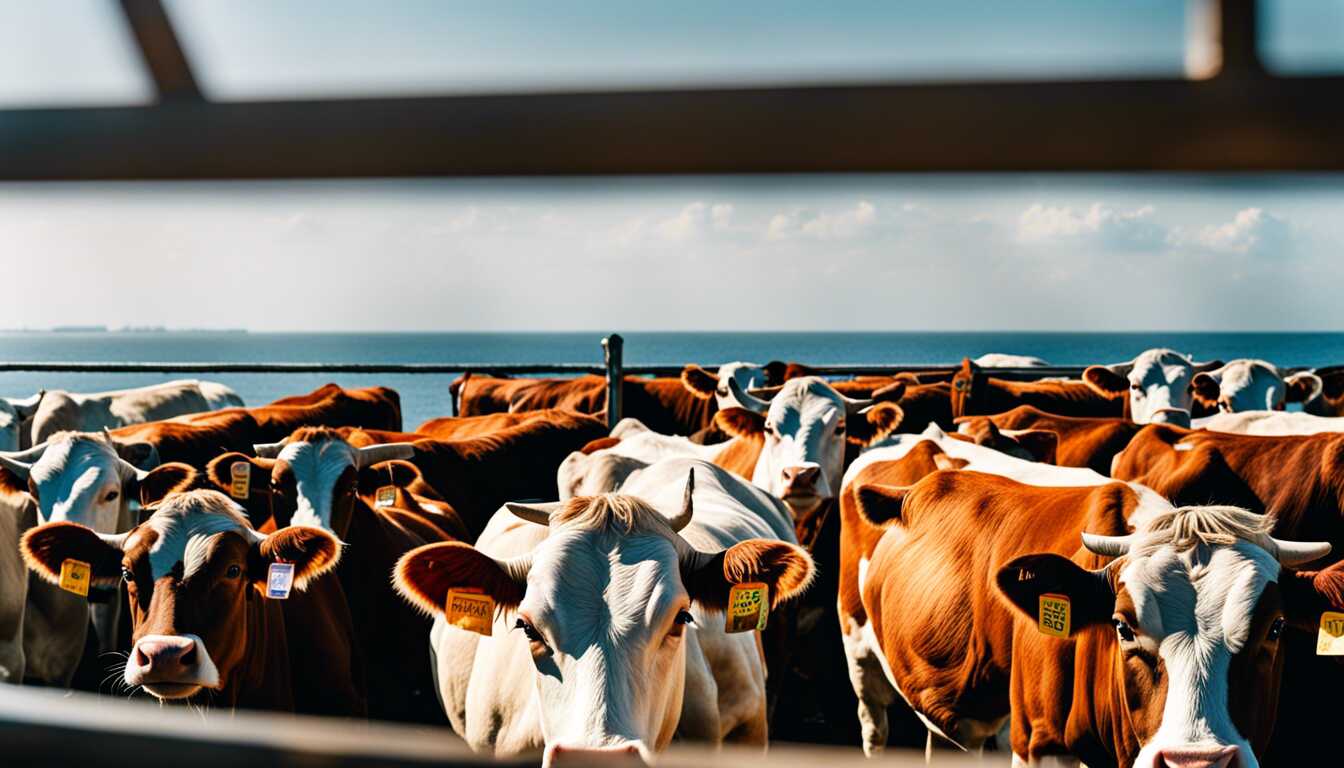
Foul stench in South African city traced back to cattle ship

In Cape Town, South Africa, a pungent smell invaded the city, prompting authorities to launch an investigation to identify its origin. The city officials inspected sewage facilities, while an environmental health team was activated to pinpoint the source of the foul stench. It was later discovered that a ship docked in the harbor, which was transporting 19,000 live cattle from Brazil to Iraq, was the cause of the unpleasant odor.
Reactions from Officials and Animal Welfare Groups
Zahid Badroodien, the official in the mayor's office overseeing water and sanitation, took to social media to confirm the findings. He stated that the "sewage smell blanketing parts of the city" was indeed emanating from the cattle ship. The imminent departure of the ship likely brought relief to the affected residents as they endured an unpleasant start to their week.
The ship's arrival also triggered serious criticism from animal welfare groups. The National Council of the Society for the Prevention of Cruelty to Animals (SPCA) sent a veterinary consultant onboard the ship to assess the welfare of the animals. The organization strongly opposed the export of live animals by sea, citing the appalling conditions the animals endure during the journey. The SPCA's statement highlighted the distressing experience of the animals, emphasizing the buildup of feces and ammonia onboard, creating an unimaginable stench that the animals endure daily.
Details about the Ship and Political Response
The 190-meter long Al Kuwait, a Kuwaiti-flagged livestock vessel, docked in Cape Town to load feed for the cattle, as reported by the SPCA. South Africa's Democratic Alliance political party, which governs Cape Town, also condemned the transport of live cattle, asserting that it exposes animals to perilous conditions such as dangerous ammonia levels, rough seas, extreme heat stress, injuries, and other forms of distress.
This incident adds to the growing global concern over the transportation of live animals by sea. Earlier this month, a ship carrying over 16,000 cattle and sheep destined for the Middle East encountered scrutiny after becoming stranded at sea for nearly a month due to attacks by Houthi rebels in the Red Sea. Although the ship faced accusations of cruelty, veterinarians found no significant health and welfare issues among the livestock.
The outcry from officials and animal welfare groups underscores the need for closer scrutiny of the conditions endured by animals during long-distance transportation. As the investigation into the Cape Town incident continues, the broader discussion on the welfare of live animals during transport gains prominence, prompting calls for more stringent regulations and oversight in the industry.
Share news















